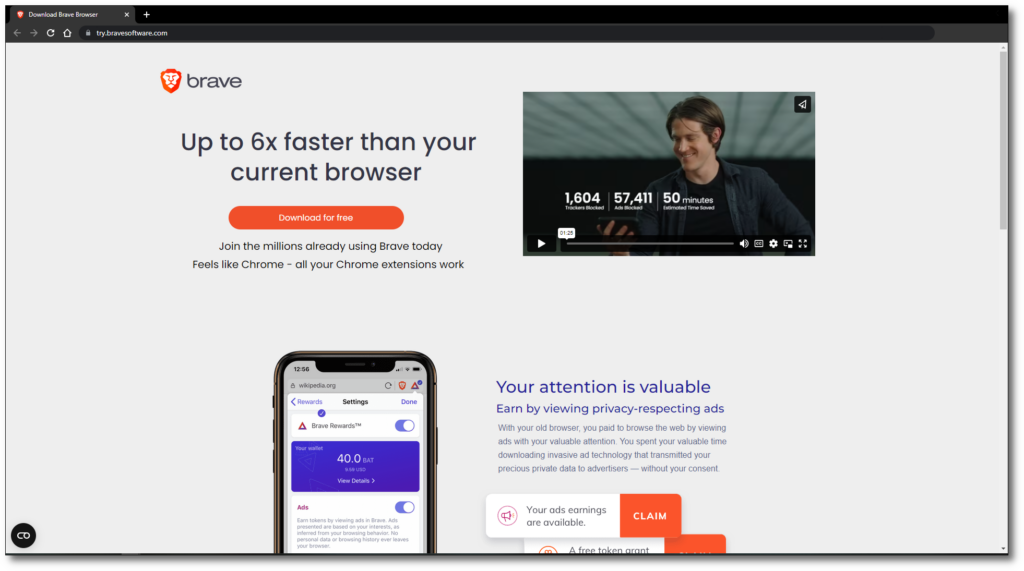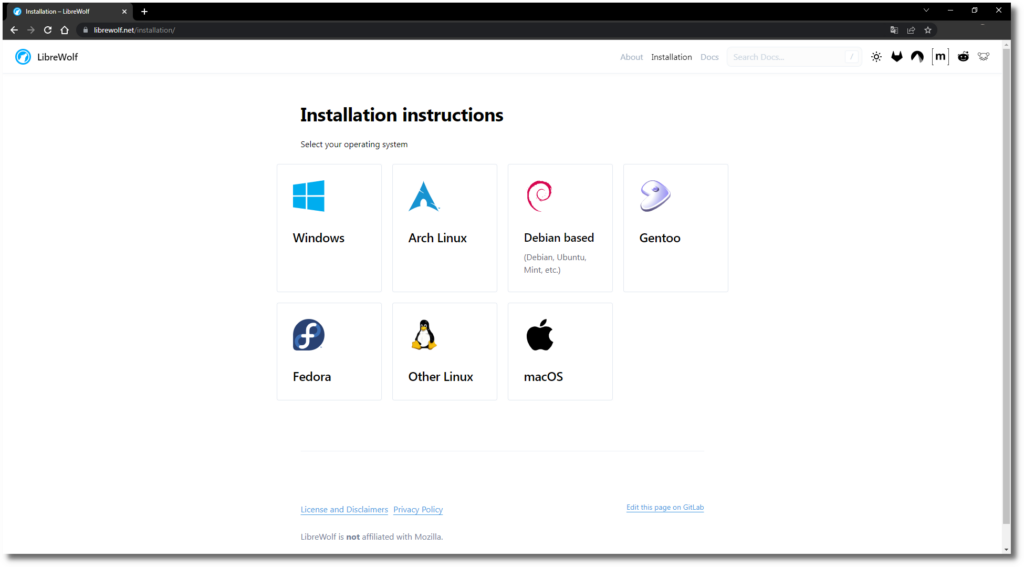Chrome has become the de facto standard of today’s web browsing. But is it really the best option and what about its alternatives?
Better
Browsing
Through
Options
11 Browsers, neither made by Google nor Microsoft
Chrome is the current web browser standard on Windows devices, and for good reason. It is fast, expandable, user-friendly and has a beautiful interface. However, it’s easy to forget that there are many other great browsers with a wide range of benefits. And since not everyone wants to jeopardise their data security with a Google product, we have put together a few good alternatives for you here.
Firefox

Firefox is a free web browser developed by the Mozilla project. Excluding mobile devices, Firefox held nearly 8% of the market share in 2022, making it the 4th most used browser in the world as of September 2022. However, it is also important to note that Opera is just as secure, if not more insecure, than Chrome and that data is also passed on to Chinese authorities. Usable on devices running Windows, Mac and Linux, Firefox is also available for Android and iOS. Mozilla Firefox receives criticism mainly for the large financial contribution from Google and the use of anti-copy protection, whose source code violates the principles of open-source software.
License: Open Source (GPL 2), Available for:Links
Brave

Brave is an open-source web browser based on Chromium. It is available for Windows, macOS, Linux, Android and Apple iOS operating systems. Brave’s concept consists of the option to display untracked adverts from its own advertising provider “Brave Rewards”. This is remunerated via a token based on the Etherum blockchain (BAT).
Lizenz: Open Source (MPL 2), Verfügbar für:Links
LibreWolf

LibreWolf is a web browser with a focus on privacy and (data) security. The browser works on the basis of Firefox, with any intrusion into privacy, telemetry and data collection removed.
License: Open Source (MPL 2), Available for:Links
Chromium

Chromium is made available as an open-source project and consists of most of the source code for Google Chrome. It runs on Windows, Mac, Linux and Chromium OS. Many other browsers and forks like Brave, Comodo Dragon, and many more are based on Chromium.
License: Open Source (MPL 2), Available for:Links
Opera

Developed by the Norwegian company of the same name, Opera is a free proprietary software web browser. He has been using the Chromium renderer since 2013. Its (paid) extensive premium functions make it particularly attractive. Opera can be used on all major operating systems, as well as iOS, Chromebook and Andriod.
Licence: Proprietary, Available for: ![]()
![]()
![]()
![]()
![]()
Konqueror
Konqueror is a mix of a free, open-source web browser and a file manager for all kinds of data management, usable only on Linux systems. It is a core part of the KDE Software Compilation and is maintained by volunteer developers. Konqueror clearly stands out for combining a web browser and a file manager.
License: Open Source (GPL), Available for: ![]()
Vivaldi
Vivaldi is a web browser created by the closure of My Opera and operates in this market niche of the community’s collaborative software. Owned by Vivaldi Technologies (founded by a long-time head of Opera Software), the software is proprietary freeware funded by incorporating standard search engines and bookmarks. Vivaldi runs on Windows, MacOS and some Linux operating systems, as well as Android devices.
License: Open Source (GPL), Available for:Tor

The Tor Browser is based on a modified version of Mozilla Firefox with the “NoScript” add-on combined with the Tor Client, which allows users to easily get started with the Tor network. Tor anonymizes the connection data and can thus, for example, filter bubbles. In this way, connections to the so-called “dark web” can also be established. Tor is available for almost all operating systems, including Microsoft Windows, macOS, Android, Linux, and BDS. A separate offshoot (Onion Browser) is available for Apple iOS.
License: Open Source (BSD), Available for:Midori

The Midori (Japanese for “green”) browser has been based on Chromium since it was taken over by the Astian Foundation and convinces with only the most important features and a minimalistic design. Midori works largely free and cross-platform for MacOS, Windows, Linux and even Android.
License: Open Source (GPL 3), Available for:Min
The open-source web browser Min relies on undisturbed work in the browser and a minimalistic design. Most of the special functions are heavily broken down and, above all, focus on a concentrated workflow, for example tabs can be bundled into tasks, or shortcuts for fast browsing are preset. It is available for macOS, Windows and Linux
Lizenz: Open Source, Verfügbar für:Gnome Web

Gnome Web is the official free web browser of the Gnome project. It supports cookie management and includes a pop-up blocker, as well as an ad blocker. The browser is available for GNU/Linux, BSD and macOS.
License: Open Source (GPL), Available for:Pale Moon
The Pale Moon web browser used to be a fork of Mozilla Firefox and now impresses with the customisability of its interface, while retaining core elements of Firefox. It is a free and cross-platform browser that runs on Windows and Linux (sometimes even in versions for obsolete operating systems and hardware). The browser is also available for macOS and BSD as a beta.



